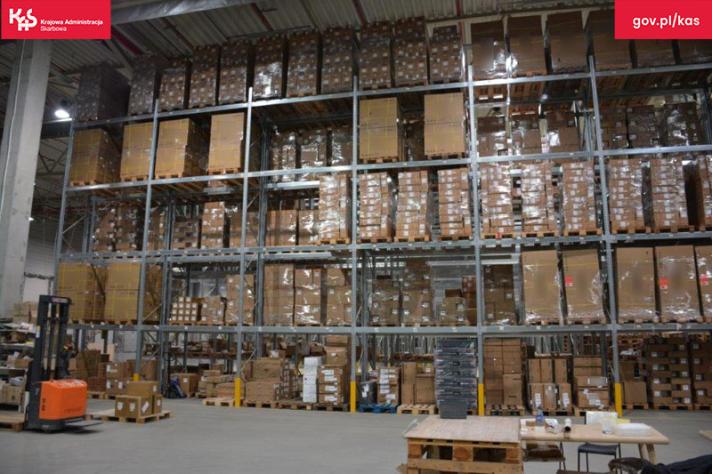
Press release No 2/2024
PDF version
Investigators from the European Anti-Fraud Office (OLAF) tracked down 20,000 e-bikes from China that had been imported into the EU in evasion of at least 8 million euro of anti-dumping duties and 4 million euro of VAT. The e-bikes were seized by Polish Customs. Several other Member States also supported the investigation.
OLAF’s investigation uncovered a trade route that went from China to e-commerce warehouses in Poland, via several entry points and border crossings at the EU’s external borders. From the warehouses, the e-bikes were then sold on to European customers on online platforms operated by non-European traders.
E-bikes from China are subject to EU trade defence measures that protect European producers from unfair competition. Anti-dumping and countervailing duties of 87.3% of the value of the e-bikes apply upon importation into the EU.
OLAF, Polish customs and other partners found that the e-bikes were smuggled into the EU by abusing transit procedures – which suspend import duties and VAT under certain conditions – or so-called customs procedure 42, which delays the payment of VAT only. The e-bikes ended up in warehouses in Poland instead of the destinations declared at customs. False import documentation passed the e-bikes off as other products that are not subject to import duties. ‘Missing trader’ schemes were used to avoid the payment of the VAT (see below for background).
An early estimation of the damages, based on the average price at which the e-bikes are sold on the platforms, indicates that at least 8 million euro of anti-dumping and countervailing duties and 4 million euro of VAT would have been evaded.
Ville Itälä, Director-General of OLAF, commented: "We uncovered quite a set of irregularities. In between the customs duties and the VAT, the people behind this scheme evaded millions of euro. Their goal was to sell the e-bikes to EU customers on web platforms, with high profits and probably at very competitive prices – easy to do when you evade taxes. Who would have borne the cost of that? European taxpayers and European workers. Unfair competition puts their jobs on the line."
Poland and other Member States supported the OLAF investigation for several months. For more information, please see the press release by the Polish Customs.
Background
Customs procedure 42 allows for a VAT exemption in the first country on entry into the European Union when the goods have their final destination in a different EU Member State, under the principle that VAT will be due in the Member State of destination.
Similarly, the transit procedure allows for the transport of goods for clearance at the place of final destination, and applies both to VAT and customs duties.
‘Missing trader’ fraud schemes can vary in their complexity and in their international dimension. However, they generally involve a trader charging VAT on the sale of goods and then taking off instead of paying the VAT to the national authorities as due – hence the name of the scheme, the trader goes ‘missing’.
OLAF mission, mandate and competences:
OLAF’s mission is to detect, investigate and stop fraud with EU funds.
OLAF fulfils its mission by:
• carrying out independent investigations into fraud and corruption involving EU funds, so as to ensure that all EU taxpayers’ money reaches projects that can create jobs and growth in Europe;
• contributing to strengthening citizens’ trust in the EU Institutions by investigating serious misconduct by EU staff and members of the EU Institutions;
• developing a sound EU anti-fraud policy.
In its independent investigative function, OLAF can investigate matters relating to fraud, corruption and other offences affecting the EU financial interests concerning:
• all EU expenditure: the main spending categories are Structural Funds, agricultural policy and rural development funds, direct expenditure and external aid;
• some areas of EU revenue, mainly customs duties;
• suspicions of serious misconduct by EU staff and members of the EU institutions.
Once OLAF has completed its investigation, it is for the competent EU and national authorities to examine and decide on the follow-up of OLAF’s recommendations. All persons concerned are presumed to be innocent until proven guilty in a competent national or EU court of law.
For further details:
Kirill GELMI
Spokesperson
European Anti-Fraud Office (OLAF)
Phone: +32(0)2 29-88146
Email: olaf-media@ec.europa.eu
https://anti-fraud.ec.europa.eu
Twitter: @EUAntiFraud
LinkedIn: European Anti-Fraud Office (OLAF)
Theresa ZAHRA
Deputy Spokesperson
European Anti-Fraud Office (OLAF)
Phone: +32 (0)2 29-57270
Email: olaf-media@ec.europa.eu
https://anti-fraud.ec.europa.eu
Twitter: @EUAntiFraud
LinkedIn: European Anti-Fraud Office (OLAF)
If you’re a journalist and you wish to receive our press releases in your inbox, please leave us your contact data.
Details
- Publication date
- 7 February 2024
- Author
- European Anti-Fraud Office
- News type
- OLAF press release
